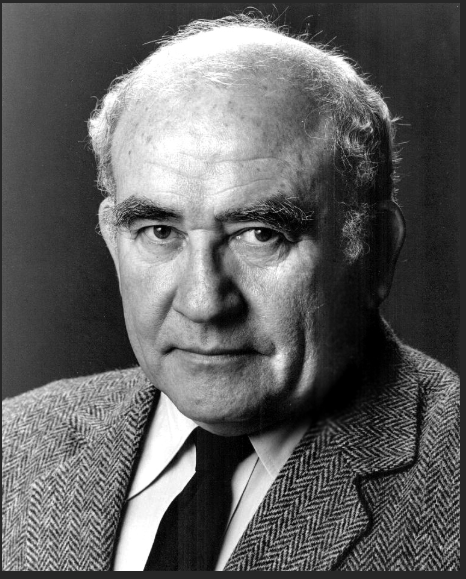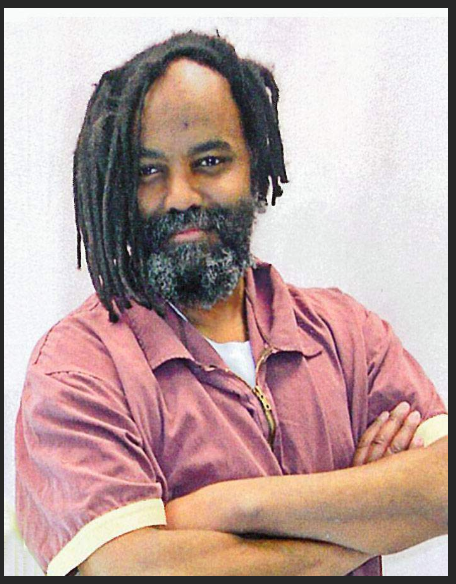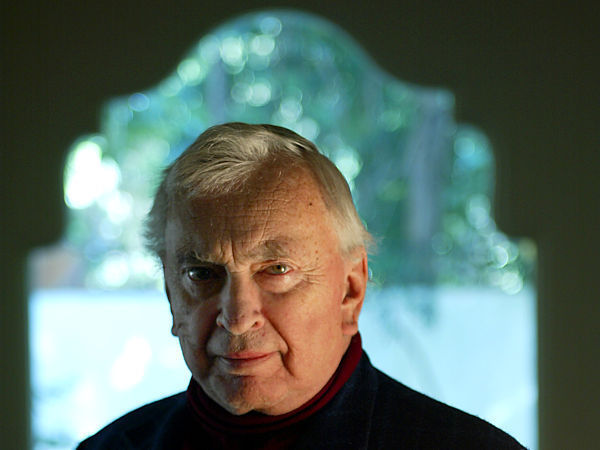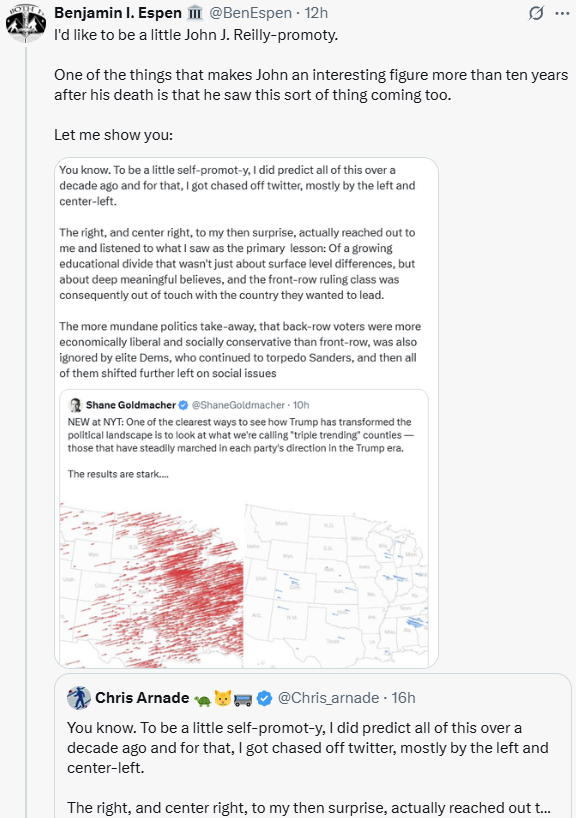The Long View 2006-08-03: Fahrenheit Hype; World Can't Wait; Empire Past Due Date

Ed Asner

Mumia Abu-Jamal

Gore Vidal

Howard Zinn
I've always found the idea of putting Ed Asner, Mumia Abu-Jamal, Gore Vidal, and Howard Zinn in a room together and seeing what happens funny. Four men with strong opinions, and probably not used to taking no for an answer. 3 of the 4 have now passed on, but this is an image that has stuck with me for more than a decade.
Fahrenheit Hype; World Can't Wait; Empire Past Due Date
Yes, it's been about 100-degrees Fahrenheit (37.77 Celsius) in the New York area for the last few days. I am more uncomfortable than most people, since my air conditioner needs recharging, but I am losing patience with the media treating the warm spell as if the sun were going nova.
Look, here's some strange weather that could engage my enthusiasm about now: major snowfall in the principal cities of South Africa. Even that is unusual rather than unheard of. There is a skiing area in South Africa, where people are pleased with the anomaly:
"Tiffindell usually gets about five snowfalls a year," [said a local man], "but rarely 25 centimetres in one day, as on Tuesday."
Now if it rained fish, I would really be impressed.
* * *
Speaking of degrees Fahrenheit, have you ever wondered what the zero on the scale is supposed to represent? No? Well, it's complicated, but this is the best explanation:
Another story holds that [Gabriel Fahrenheit (1686-1736)] established the zero of his scale (0 °F) as the temperature at which an equal mixture of ice and salt melts (some say he took that fixed mixture of ice and salt that produced the lowest temperature); and ninety-six degrees as the temperature of blood (he initially used horse blood to calibrate his scale). Initially, his scale only contained 12 equal subdivisions, but later he subdivided each division into 8 equal degrees ending up with 96.
The ice-and-salt story is the one in most of the books. Certainly it makes the most sense, given that Fahrenheit wanted a measurement that could be produced in any laboratory. Just because the story makes the most sense, of course, does not mean it is necessarily true.
* * *
Speaking of overheating, readers of the New York Times were treated to a full-page ad by an organization called World Can't Wait that denounces War! Torture! Katrina! Theocracy! (italics and all) and seeks to organize a series of rallies for October 15 to overthrow the government:
World Can't Wait is organizing people living in the United States to take responsibility to stop the whole disastrous course led by the Bush administration. We seek to create a political situation where the Bush administration's program is repudiated, where Bush himself is driven from office, and where the whole direction he has been taking U.S. society is reversed.
All the usual suspects, absolutely all of them, signed the ad, but I noted this quartet in particular: Edward Asner, Mumia Abu-Jamal, Gore Vidal, Howard Zinn. Does anyone suppose that if all these people met in the same room they would find each other congenial?
Perhaps my research skills are deficient, but it seems to me the Times is oddly coy about publicizing its rates for a full-page ad, or at least publicizing them online. Some asides I have come across suggest that current rates are about $50K for a nonprofit and $150K for a commercial advertiser. Can anyone confirm?
There are lots of reasons why Richard Nixon was reelected in an unprecedented landslide in 1972, but surely one of them was that the anti-war movement succeed in persuading the electorate that the movement really was the alternative. With the publication of today's ad in the Times, I think the Republicans' prospects in the Congressional races this fall have measurably improved. Yes, the ad probably was paid for by some rich idiot, but the sort of idiot who does not understand when his cause is better served by his silence.
* * *
Vietnam analogies are much on the mind of Jonathan Schell, if we may judge from his essay It's Too Late for Empire. Though of course holding the Bush Administration in light esteem for reasons that need not detain us, Mr. Schell has advanced from blaming the Rove-neocon-theocrat smoke-and-mirrors machine to blaming the people itself:
Any oppositionist who is honest will keep in mind that a majority, however narrow, of Americans voted that one party into power in a series of elections. Especially important was the presidential election of 2004, when many, though not all, of the abuses were already known. (And then the election itself was subject to grave abuses, especially in Ohio.) The weight and meaning of that majority do not disappear because it was demonstrably misinformed about key matters of war and peace. It's one thing to oppose an illegitimate concentration of power in the name of a repressed majority, another to oppose power backed and legitimized by a majority. In the first case, it will be enough to speak truth to power; in the second, the main need is to speak truth to one's fellow citizens.
And what is the delusion for which the people must be rebuked?
[A] kind of anxiety-ridden triumphalism...[In the view of the Right] Like the genie in Aladdin's bottle, the United States seemed to be a kind of magical being, first filling the sky, able to grant any wish, but a second later stoppered and helpless in its container. It was to be depended not on any enemy, all of whom could easily be laid low if only America so chose, but on Americans at home, who prevented this unleashing of might. If Americans cowered, it supposedly was mainly before other Americans. Get them out of the way, and the United States could rule the globe.
His thesis is that constitutional crises occur when military failures cause American governments to persecute dissidents as the real cause of the failure, as when the fall of China to the Communists caused the Senate to get all in a snit about those notes that Alger Hiss used to pass to Soviet intelligence, or that several people were rude to Jane Fonda after she posed on a North Vietnamese anti-aircraft gun. These are not quite the examples he uses, but even the ones he does use, such as Richard Nixon's "enemies list," are chiefly notable as mythology. The actual "enemies list" was a White House "do not invite" list. There was a real constitutional crisis during the Nixon Administration, but only because the Democrats wanted one. And the same was true during the 1990s, when the Republicans set a standard for presidential impeachment that George Bush may yet have cause to regret, but I digress.
The surreal thing about Schell's thesis is it has long been the Left that sought to "bring the war home" for domestic political reasons. One could argue that the Liberal Party in Britain was doing this as early as the Boer War. As for the later and more radical Left, it's Agitator 101 that a lost war helps create a revolutionary situation. Part of the bad temper of the American Left derives from the fact that they finally got an unambiguous American defeat in Vietnam and were unable to capitalize on it, beyond sending people like Gary Hart to Congress.
Too Late For Empire is more generally in aid of the central argument that of Schell's book, Unconquerable World, which is that conventional war is obsolete and unconventional wars are unwinnable:
Though it's hard to shed a tear, you might say that there was a certain unfairness in America's timing. All the ingredients of past empires were there - the wealth, the weapons, the power, hard and soft. Only the century was wrong. The United States was not, could not be, and cannot now be a new Rome, much less greater than Rome, because it cannot do what Rome did.
No doubt thinking of the thesis of Hardt & Negri's Empire, he notes:
Perhaps it will still be possible to shoehorn the United States into a stretched definition of "empire", but it would look nothing like Britain or Rome.
That would be an important point if the United States were trying to do what Rome and Britain did, or for that matter if Rome and Britain had done the same thing. It is certainly too late for a colonial empire like Britain's, and for that matter it is unimaginable that the United States would or could mimic Rome. That is quite a different thing from saying that the international system might not evolve in such a way that the US might wind up with a monopoly of certain kinds of force. Such a monopoly held by some entity in the world would in any case be necessary to make most conventional wars impossible, which is the chief precondition for the nonviolent politics that Schell favors.
Finally, to read Schell is to encounter by yet another mind in which it will always be 1970. He projects the paradigm of the national liberation movement onto transnational millenarian networks, and he repeats again and again that nuclear weapons are unusable; meanwhile, lesser powers acquire them im contexts, such as Iran versus Israel, or India versus Pakistan, in which they would be eminently usable. It's like the never-ending tours by the Rolling Stones, except the Stones know they are a nostalgia act.
Copyright © 2006 by John J. Reilly




Comments ()